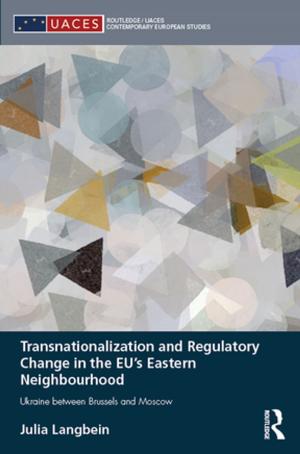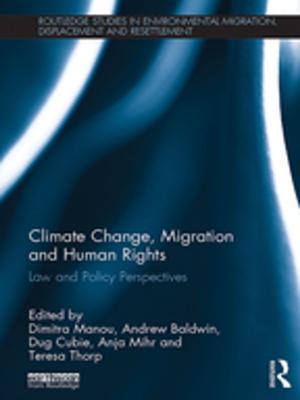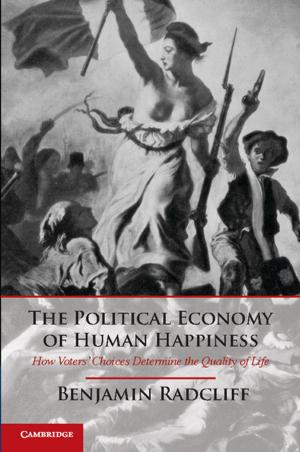Governing diversity
Migrant Integration and Multiculturalism in North America and Europe
Nonfiction, Social & Cultural Studies, Political Science, Politics, Social Security, Government, Social Policy, Public Policy| Author: | Isabelle Rorive, Djordje Sredanovic, Andrea Rea | ISBN: | 9782800416892 |
| Publisher: | Editions de l'Université de Bruxelles | Publication: | May 22, 2019 |
| Imprint: | Editions de l'Université de Bruxelles | Language: | English |
| Author: | Isabelle Rorive, Djordje Sredanovic, Andrea Rea |
| ISBN: | 9782800416892 |
| Publisher: | Editions de l'Université de Bruxelles |
| Publication: | May 22, 2019 |
| Imprint: | Editions de l'Université de Bruxelles |
| Language: | English |
During the 2000s, the European Union has witnessed a significant change in terms of integration policies for immigrants.
This book intends to address the relationship between, on the one hand, cultural diversity resulting from migration, and, on the other hand, social cohesion and social justice within Western societies. In order to do this, the authors examine what can be described as two contradictory trends in recent public policies towards foreign people or people with a foreign origin.
A book that aims to provide a trans-disciplinary analysis of the construction of “otherness” in North America and Europe.
EXTRAIT
In October 2010, in a very polemic context on immigration and immigrant integration, the German Chancellor, Angela Merkel, announced that Germany was to be considered a multicultural failure, words that were soon echoed by the Belgian Prime Minister Yves Leterme. A few months later, the British Prime Minister David Cameron and the French President Nicolas Sarkozy announced the failure of multiculturalism in almost identical terms. These sensational statements, which by and large avoid defining the concept of multiculturalism, are based on a reaffirmation of “Western values” and strengthening of national identity. These statements express the need to review the policies on integration of immigrants, in the sense that they should be more active and voluntarist, more organized by the state and more supported by the EU. In the background, one can see fear for Islamic extremism, but also the idea that the nation states can put some obligations on immigrants, and that for a too long time we have been focusing on “those who arrive”, rather than on “the society that welcomes them”. These speeches are situated in a politico-legal context that in recent years was characterized by an ambivalent attitude towards diversity in Europe. On the one hand, we have seen accusations of racial, ethnic and religious discrimination, based on antidiscrimination legislation boosted by a strong European equality legal framework. On the other hand, we have seen denouncements of the perceived risk posed by Islam in Europe. These policy statements are also a result of numerous publications, often widely discussed in the media that outline the dangers of Islam in Europe (especially in the Netherlands). These political positions have also led to political decisions demonstrating the lack of legitimacy of Islam in Europe, such as the ban on building minarets in Switzerland or the Burqa bans adopted in the name of protecting national values and the “living together”, notably in France and Belgium (2011).
During the 2000s, the European Union has witnessed a significant change in terms of integration policies for immigrants.
This book intends to address the relationship between, on the one hand, cultural diversity resulting from migration, and, on the other hand, social cohesion and social justice within Western societies. In order to do this, the authors examine what can be described as two contradictory trends in recent public policies towards foreign people or people with a foreign origin.
A book that aims to provide a trans-disciplinary analysis of the construction of “otherness” in North America and Europe.
EXTRAIT
In October 2010, in a very polemic context on immigration and immigrant integration, the German Chancellor, Angela Merkel, announced that Germany was to be considered a multicultural failure, words that were soon echoed by the Belgian Prime Minister Yves Leterme. A few months later, the British Prime Minister David Cameron and the French President Nicolas Sarkozy announced the failure of multiculturalism in almost identical terms. These sensational statements, which by and large avoid defining the concept of multiculturalism, are based on a reaffirmation of “Western values” and strengthening of national identity. These statements express the need to review the policies on integration of immigrants, in the sense that they should be more active and voluntarist, more organized by the state and more supported by the EU. In the background, one can see fear for Islamic extremism, but also the idea that the nation states can put some obligations on immigrants, and that for a too long time we have been focusing on “those who arrive”, rather than on “the society that welcomes them”. These speeches are situated in a politico-legal context that in recent years was characterized by an ambivalent attitude towards diversity in Europe. On the one hand, we have seen accusations of racial, ethnic and religious discrimination, based on antidiscrimination legislation boosted by a strong European equality legal framework. On the other hand, we have seen denouncements of the perceived risk posed by Islam in Europe. These policy statements are also a result of numerous publications, often widely discussed in the media that outline the dangers of Islam in Europe (especially in the Netherlands). These political positions have also led to political decisions demonstrating the lack of legitimacy of Islam in Europe, such as the ban on building minarets in Switzerland or the Burqa bans adopted in the name of protecting national values and the “living together”, notably in France and Belgium (2011).















